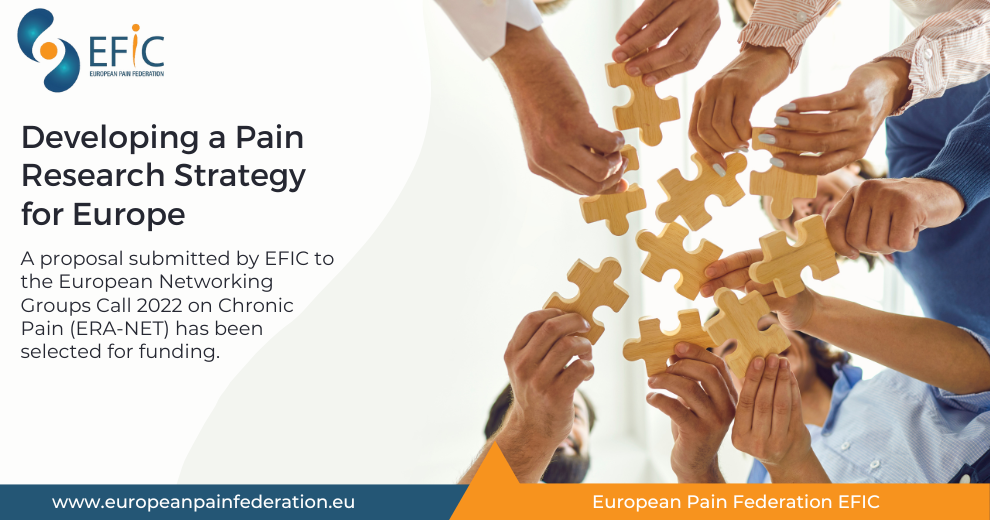The European Pain Federation EFIC is excited to announce that that a proposal submitted to the European Networking Groups Call 2022 on Chronic Pain (ERA-NET) has been selected for funding. Led by EFIC, the project will create a multidisciplinary expert networking group to implement a European Pain Research Strategy focused on the most pressing priorities. The project will communicate priorities to all stakeholders, foster collaboration between basic and clinical research groups and industry partners to optimise their translation into European policies and practice.
ERA-NET NEURON is a funding platform focused on brain-related diseases and disorders of the nervous system and holds a strategic position in bringing pre-clinical and clinical research communities closer together and fostering translational research, while covering the entire value chain. The ‘Network of European Funding for Neuroscience Research’ (NEURON) has been established under the ERA-NET scheme of the European Commission (www.neuron-eranet.eu).
In 2022, they launched a Chronic Pain Networking Call. This was to stimulate joined efforts of basic scientists, clinicians, lay organisations, and policymakers to work together on understanding the pathophysiology of chronic pain, improve diagnosis and therapy, increase awareness, and improve the every-day life of the patients. It is hoped that synergies in the research community arising from the networking call can to overcome gaps and hurdles to progress, build overarching networks, and to generate harmonizing concepts and ideas in the field of chronic pain.
The title of EFIC’s proposal is Developing a Pain Research Strategy for Europe: an international network of world-leading experts and patient representatives (PRiSE). The main goal is to develop and implement a European Pain Research Strategy focused on the most pressing priorities across basic, pre-clinical, translational, and clinical chronic pain research.
This will be achieved through four objectives:
- Reach consensus on the most important research priorities across basic, pre-clinical, translational, and clinical chronic pain research, and how they should be addressed.
- Explore enablers and barriers to successful implementation of the Strategy.
- Develop a web platform to amalgamate developments in, and track the success of our implementation efforts.
- Create a roll-out framework to ensure its successful implementation.
These objectives will be addressed in three work packages (WPs):
- WP1. We will conduct two 2-day face to face workshops to reach consensus on priorities, how they should be addressed, and explore enablers and barriers to successful implementation of the Strategy.
- WP2. We will conduct virtual focus groups to identify key features of a web platform to track and record the success of our implementation efforts.
- WP3. We will conduct a multifaceted dissemination and communication approach to roll-out the Strategy.
This project will communicate a clear set of priorities to all stakeholders, foster collaboration between research groups – enabling high-quality impactful chronic pain research, and maximising its translation into European policy and practice. It has the potential to advance understanding and lead to enhanced solutions for chronic pain, and will increase the profile of pain research in Europe and advocate for funding for the top pain priorities.
